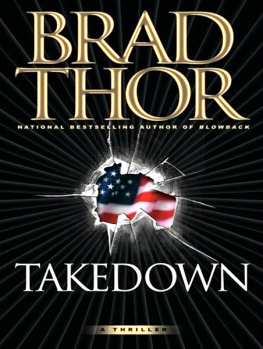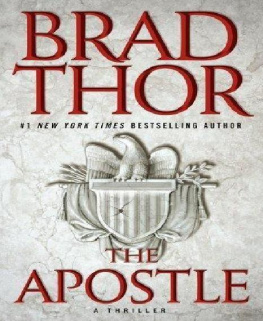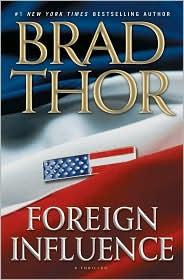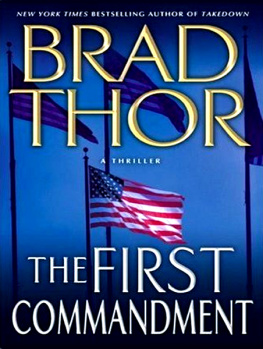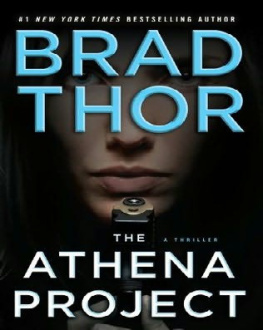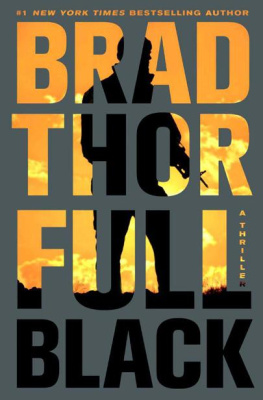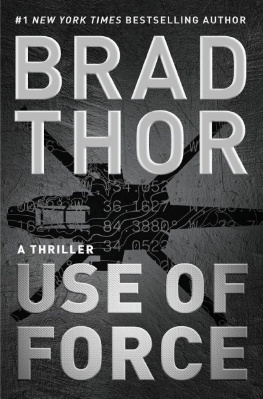One
D JEMMA EL -F NA M ARKET
M ARRAKECH , M OROCCO
M AY 11
T he problem with being in the wrong place at the wrong time is that you never know it until its too late. Thats how it was for Steven Cooke, and the bitter irony was that right up to the very last moment of his life, he thought he had stumbled upon an intelligence jackpot.
The blond-haired, blue-eyed twenty-six-year-old had happened across the meeting completely by accident. In fact, Cooke wasnt even supposed to be in that part of town except that his sister had asked him to bring her a special caftan when he flew home for a long-overdue visit at the end of the week.
Although he had way too much work to do before leaving, Steven had always found it hard to say no to Allison. The two were more than brother and sister. They had been best friends since childhood. In fact, Allison was the only person who really knew what he did for a living. Even their parents had no idea that their son was a CIA field officer.
Steven had been in Morocco just under a year and had gotten to know Marrakech fairly well. The souk at the heart of the small city was a labyrinth of passages and narrow alleyways. Donkey carts laden with merchandise lumbered up and down the hot, dusty thoroughfares, while the ever-present haze hung so thick that neither the citys mud-brick walls nor the high Atlas Mountains off in the distance could be seen from the main square. The heat was absolutely insufferable and as he combed the various covered markets for the perfect caftan for Allison, Cooke was grateful for the shade.
It was when Steven took a shortcut through one of the alleys that he noticed an unremarkable caf with a rather remarkable patrona man who had disappeared two days before the September 11th attacks and for whom the United States had been searching ever since.
If he was correct, his discovery would represent not only a major coup for American intelligence, but it might also place a very distinct feather in his cap and set him apart as one of the more distinguished young field operatives. That would be nice, though Cooke reminded himself that he had joined the CIA to help defend his country, not to rack up attaboy s.
Removing his cell phone, Steven contacted his supervisor and filled him in on everything he had seen, including a mysterious new player who had entered the caf and was now sitting at their mans table. With no one close enough to provide support, the best his boss could do was request the retasking of one of their surveillance satellites to help gather additional intelligence. The lions share of the operation would fall to Steven. There were a staggering number of question marks surrounding the man in that caf and the CIA needed Steven to gather as much information about him and what he was up to as possible.
Though adrenaline, fear, and excitement were coursing through his bloodstream, Cooke focused on his training to keep himself under control.
The first thing Steven needed was a record of the meeting. Since there was no way he was going to show his white Anglo-Saxon face in that caf and potentially scare away his quarry, he had to get his hands on a fairly decent camera. Moving through the marketplace as fast as he dared, he finally found what he was looking for. The only problem was moneyhe didnt have enough of it. The souk pickpockets were notorious, and he never carried credit cards and definitely never any more cash than he knew he would need. What he did have, though, was his Kobold Chronograph wristwatch, and the shop owner gladly accepted it in exchange for a Canon digital camera with a fairly decent zoom lens and an extra-high-capacity memory card.
From the edge of a rooftop across the alley, Steven interspersed his picture-taking with pieces of short video he hoped the experts at Langley would be able to decipher. Whatever had drawn the man in the caf out of hiding must have been extremely important for him to risk this meeting.
Steven filled the high-capacity memory card and was about to reinsert the low-end factory-included card to see if he could get any pictures of the mans car once he left the caf, when he heard a noise behind him.
The garrote wire whistled through the air and then snapped tight around his neck. Stevens hands scrabbled uselessly for it as he felt a knee in his back and the pressure begin to build. When his trachea severed, the camera clattered onto the rooftop, cracking the screen.
The damage made no difference to the assassin as he dragged the lifeless young CIA operative back from the parapet and pocketed the camera as well as the spare memory card. The only thing Abdul Ali cared about was that there never be any record of the meeting in that caf.
The Americans would know its outcome soon enough, and by then it would be too late.
Two
W HITE H OUSE S ITUATION R OOM
W ASHINGTON , DC
M AY 18
P resident Jack Rutledge entered the situation room and signaled the men and women around the conference table to take their seats. He was less than five months into his second term and had already been called to this room more times than in the last two years combined.
He had hoped to use his second term to focus on the key domestic policy issues he had campaigned on and which would comprise his legacy. But more than that, the president wanted to leave his successor, Democrat or Republican, a better country than had been left to him. The war on terror, though, had much different plans for Rutledge.
Contrary to what the White House press secretary was spinning to the media, terrorist plots against America and American interests were not on the decline. They were in fact on a very marked upswing, and the United States was running out of fingers and toes with which to plug the dike.
For every attack the United States thwarted, three more popped up in its wake. The operations tempo in the intelligence, military, and law enforcement communities was higher than anyone had ever seen. Despite its phenomenal successes, most of which the average citizen was never aware of, all America seemed able to do was tread water. The country was running well beyond capacity and it was only a matter of time before the overtaxed system collapsed from sheer exhaustion. Something needed to be done, and done soon.
That was the thought on the mind of every person in the room as the president finished skimming the contents of the file folder in front of him and turned the meeting over to General Bart Waddell, director of the Defense Intelligence Agency.
Thank you, Mr. President, replied Waddell, a tall, dark-haired man in his late forties. As he stood, he pressed a button on a small digital remote, and the plasma monitors at the front of the room, as well as those recessed within the situation-room table, sprang to life with the revolving DIA logo. The footage I am about to show you was shot this morning. It was developed thanks to two converging pieces of intelligence. The first was a series of satellite surveillance photos ordered up by the Central Intelligence Agency when one of its field officers spotted the subject in North AfricaMorocco, to be exact. The second piece of intelligence was a tip that pinpointed the subjects base of operations more than six thousand kilometers southeast in Somalia.
Waddell advanced to the first slide in his PowerPoint presentation and everyone watched as a dusty Toyota Land Cruiser pulled up in front of the weather-beaten faade of a long single-story structure. What you are looking at is a Muslim religious boys school, or madrassa, on the outskirts of Mogadishu. The man getting out of the car on the right is Mohammed bin Mohammed, aka Abu Khabab al-Fari, or as our analysts are fond of calling him, M&M. He is known as al-Qaedas master bombmaker and head of their weapons of mass destruction committee. Born in Algeria in 1953, he has training in both physics and chemical engineering.

